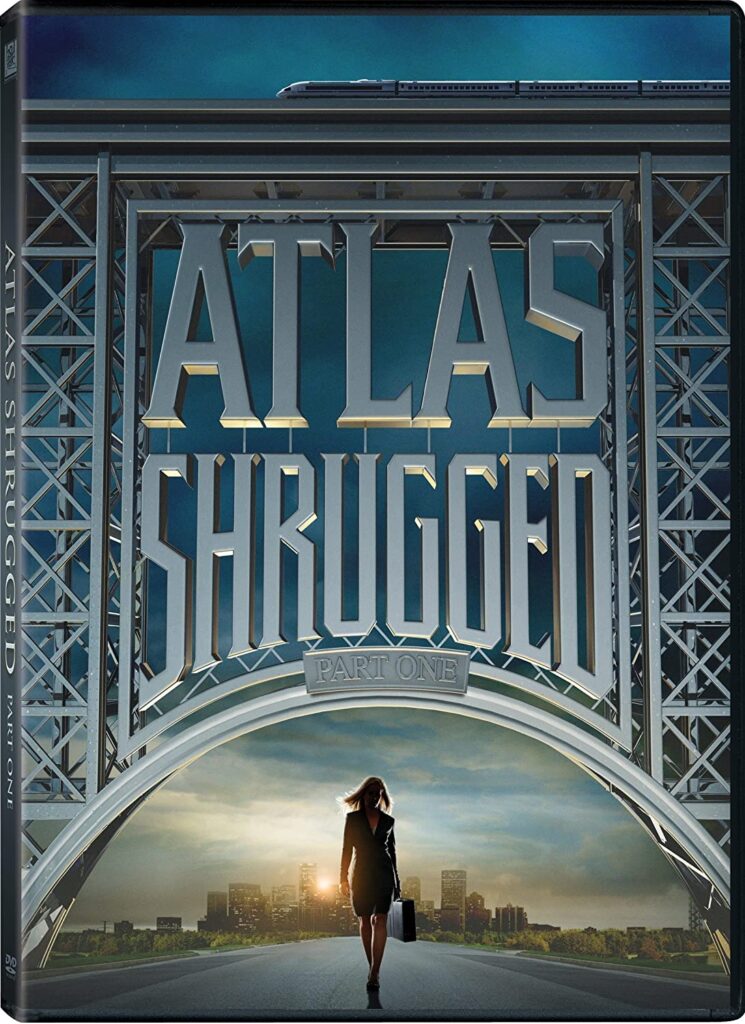
After languishing in development hell for nearly 40 years, the film adaptation of author Ayn Rand’s magnum opus finally reached the big screen earlier this year with a resounding thud. That’s due in no small part to the lack of star power in front of and behind the lens, as well as independent financing by industry outsider John Aglialoro, and yet as it turns out the final product isn’t nearly as bad as its meager box office and talent might indicate. Make no mistake: the film is by no means a classic, and yet its surprisingly faithful and effective script allows it to rise above its average acting and bland direction.
While the original novel was set in an unidentified but fairly evident 1950s setting, the adaptation moves the action forward to 2016 while retaining the novel’s focus on railroads and steelworks as key U.S. businesses. It’s hard to accept rail and steel as 21st century captains of industry, and yet I was pleased to see them retained rather than dropped in favor of modern Internet-based companies. The film opens with timely and real news footage of our current economic malaise before revealing that the nation’s best and brightest businessmen are steadily vanishing, seemingly abandoning civilization rather than continuing to play by increasingly stringent and unjust government regulations.
The country’s best railroad company is run by the imperious and intelligent Dagny Taggart and her sniveling brother James, allowing her to focus her energies on maximizing the potential of the company while he plays political boardroom games with his government cronies. When Dagny takes a gamble on an untested metal from innovative Rearden Steel for construction of a crucial bridge, she sets up a showdown in her own company as well as at Rearden Steel that comes to head when the bridge is successful. James caves to political demands and undermines Dagny’s efforts, while the government concurrently tries to destroy Hank Rearden’s company due to his refusal to share the secrets of his superior metal with the rest of his industry. There’s also a subplot involving Dagny’s ex-boyfriend, a genius and king of the copper industry, who seems to be intentionally destroying his own company and becoming a playboy, but that relationship is given fairly short shrift in the script.
As more and more important business people disappear, the recurring mysterious question “Who is John Galt?” surfaces in relation to the disappearances, although nobody seems to know the answer. Unfortunately, we don’t either, because the film only covers the first part of the book and doesn’t fully introduce the Galt character, leaving him as a shadowy background presence. Aglialoro originally expected to continue the story in future installments, but its poor box office results likely closed the door on that idea unless a miracle occurs in sales to the home video market. Still, there’s enough of Galt’s influence and the travails of the like-minded iconoclastic Dagny and Hank to hammer home Rand’s philosophy of objectivism and the evils of socialist government. Heady stuff for a fictional film to be sure, and yet very thought-provoking.
As Dagny Taggart, Taylor Schilling nails the intelligence of the role but plays it so aloof and non-emotive that she’s virtually robotic. Grant Bowler’s take on Rearden is fairly effective but similarly lacking any noticeable passion. The rest of the minor roles are uniformly competent but unremarkable. And then there’s the direction. Actor Paul Johansson (One Tree Hill) somehow got the directing reins here but made the film so bland and flat that its quality is about on par with a Lifetime movie. There’s no flair in any of the shot selections, virtually no mark that a director was even present, just a paint-by-numbers approach that simply assured the script pages were covered without bringing any spark to them. That’s the biggest shame of the film, and yet even that big detraction isn’t enough to sink the powerful and timely story.
The bonus features include a very brief featurette about the film’s production along with a ridiculous hour-long montage of average Americans saying “I am John Galt”, a marketing stunt the creators surely rued in retrospect.